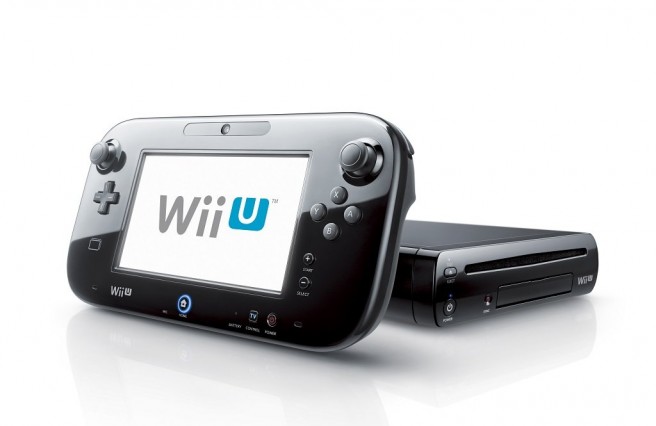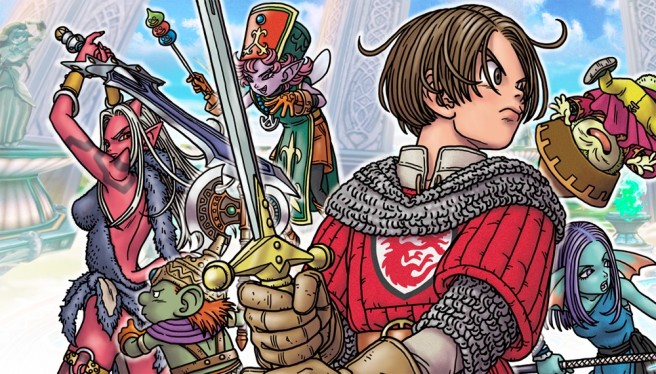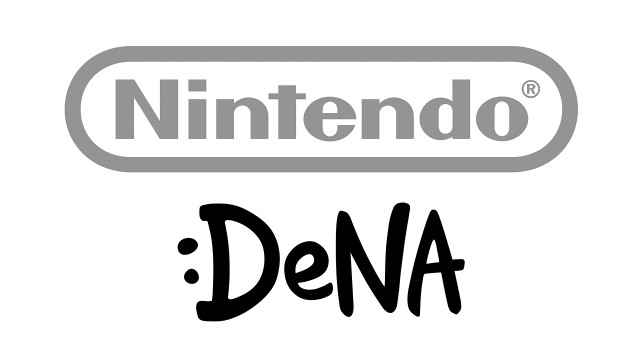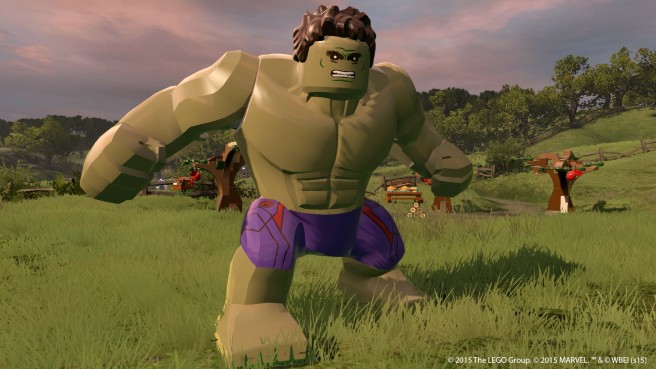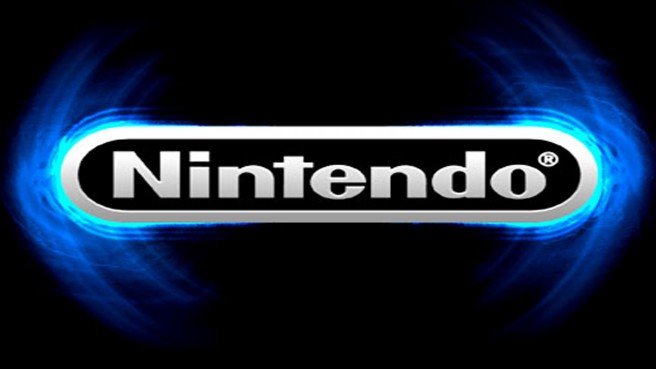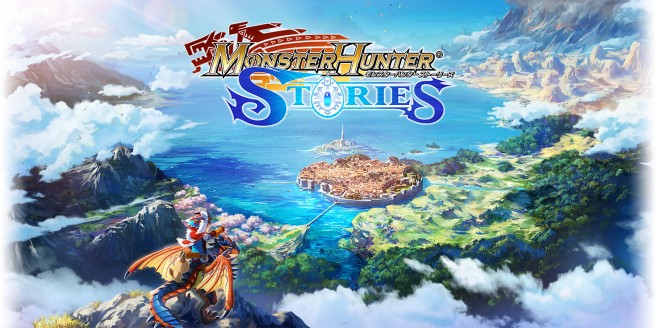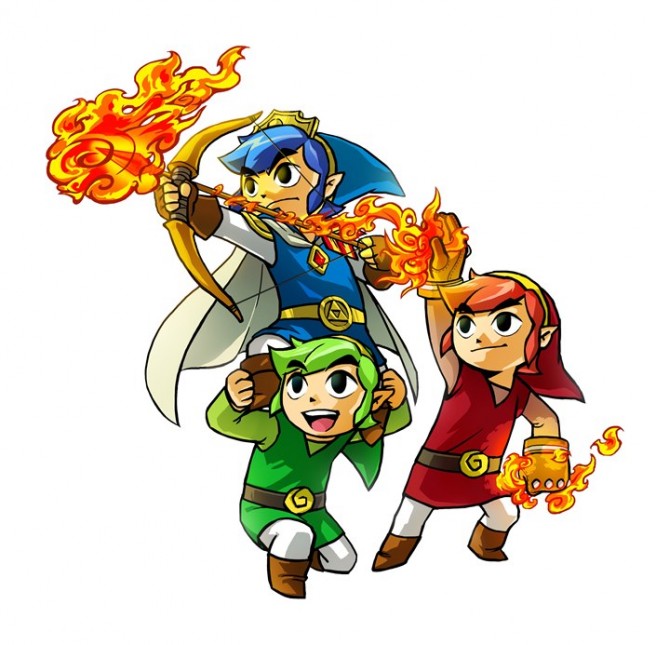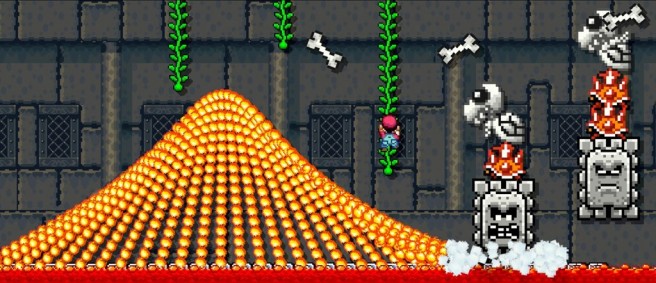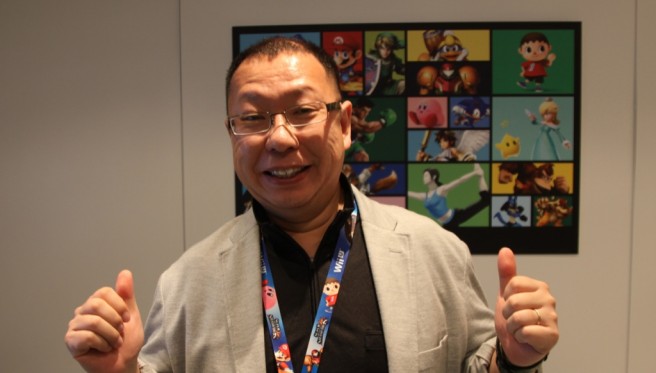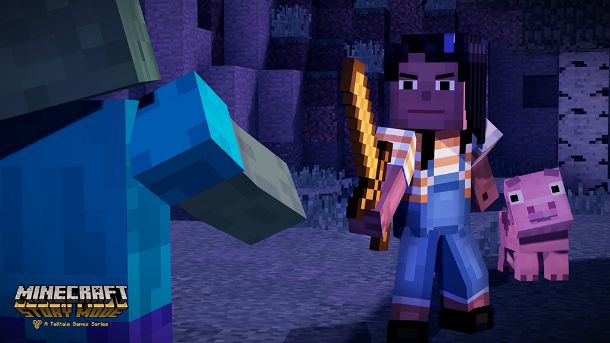Nintendo UK – Wii U has a “compelling line-up of games”, talk about delays and holiday lineup
Posted on 10 years ago by Brian(@NE_Brian) in News, Wii U | 23 Comments
In the latest issue of MCV, the publication features an interview with Nintendo UK marketing manager Chandra Nair.
Nair first talked about the Wii U by noting how it’s “a fantastic proposition for both families and gamers”. He also pointed out the system’s “compelling line-up of games” and growing list of “must-have titles”.
Nair said:
“Mario Kart 8 continues to be popular week-in, week-out, even after all this time. And Splatoon is still a relatively new title and something that kids have been pestering their parents for, so we anticipate that bringing these two fantastic games together in one value bundle should be a popular move.”
More: Chandra Nair, interview, top, UK
Square Enix says it hears the fans about wanting more Dragon Quest games in the west
Posted on 10 years ago by Brian(@NE_Brian) in 3DS, News | 50 Comments
At the New York Comic-Con last week, Game Rampage approached Square Enix senior marketing manager Mat Kishimoto about the status of Dragon Quest localizations in the west. When asked if the company hears the outcry of passionate fans, Kishimoto mentioned:
“We hear them, we hear you guys all of em, we hear you guys about Dragon Quest VII and VIII,… X is being begged for. There’s lots of factors that go into decision making like that, so there’s a lot of times we really can’t comment on it but we do um.. we really do hear everybody.”
Kishimoto was also asked if there has been any movement on the localization of Dragon Quest games. Regarding this, he said:
“[Members of Square-Enix are] building the case for each one of these titles to be localized and brought out to the west.”
Square Enix launched the newest Dragon Quest-related game, Dragon Quest Heroes, in North America this week. Kishimoto reiterated something we’ve heard previously: the title’s success could further motivate the company to bring more entries in the series overseas.
Kishimoto said:
“Let’s hope that the success of Dragon Quest Heroes kind of dovetails if you will into the future of Dragon Quest being brought out to the west, let’s hope so!”
More: Dragon Quest, interview, Mat Kishimoto, Square Enix
DeNA West boss says Nintendo’s first mobile game will be announced soon
Posted on 10 years ago by Brian(@NE_Brian) in Mobile, News | 17 Comments
We’ve all been waiting quite awhile for the announcement of Nintendo’s debut mobile game. The company said it was “making announcement plans” in August, and an insider recently indicated that news would be coming soon.
There’s still no date yet when it comes to the reveal of the mobile title. Still, DeNA West chief executive officer Shintaro Asako officially went on record at GamesBeat 2015 today and said, “Soon, we should be able to announce the game.”
Asako also reiterated previous statements. As mentioned before, five Nintendo and DeNA games are coming between now and March 2017.
Asako added:
“I can’t say too much about the Nintendo deal. But it’s a really exciting initiative. It’s a really long-term initiative.”
LEGO Marvel’s Avengers will have a tease for the next LEGO game
Posted on 10 years ago by Brian(@NE_Brian) in General Nintendo, News | 8 Comments
Despite the introduction of LEGO Dimensions, Warner Bros. Interactive has no plans to stop creating one-off LEGO games.
LEGO Marvel’s Avengers game director Arthur Parsons told Polygon:
“One million percent this is not the last Lego standalone game. The first day Lego Dimensions was announced internally, we were told there will be a standalone video games alongside Lego Dimensions. People love Lego video games and we will continue to make Lego video games.”
LEGO games have a tendency to tease future entries. As an example, LEGO Marvel Super Heroes teased LEGO Batman 3 in the post-credits. LEGO Batman 3 hinted at LEGO Marvel’s Avengers. Unsurprisingly, the latter title has a tease as well.
“There’s a tease at the end of this one too,” Parsons noted. “But you’ll have to play it to find out what it is.”
Nintendo on how they make games, fun is the most important aspect, amiibo
Posted on 10 years ago by Brian(@NE_Brian) in General Nintendo, News | 33 Comments
Gamasutra has several quotes up from producer Risa Tabata and Kensuke Tanabe, who work with external teams at Nintendo. Tabata has been involved with games such as Metroid Prime while Tanabe has been with the company for nearly three decades.
While speaking with Tabata and Tanabe, Gamasutra asked about how Nintendo tends to make its games, working with external developers, and even amiibo. Continue on below for their thoughts.
More: interview, Kensuke Tanabe, Risa Tabata, top
Hope for Monster Hunter Stories in the west
Posted on 10 years ago by Brian(@NE_Brian) in 3DS, General Nintendo, News | 2 Comments
Some news came in earlier today about David Production working on the Monster Hunter Stories anime. That information came from a recent interview with Fuji TV president Chihiro Kameyama.
In the interview, Kameyama mentioned that the Monster Hunter Stories anime is planned as both a broadcast and an anime business, which includes products, distribution and licensing. He also indicated that there might be plans to bring it overseas. There’s interest in having the series be a business much like how Yu-Gi-Oh! and Naruto are big businesses for TV Tokyo.
If the anime does make it over, that would also likely mean that we’ll be seeing the game here as well. We’ll just have to wait until next year to learn more about the situation.
More: Capcom, Chihiro Kameyama, Fuji TV, interview, top
Zelda: Tri Force Heroes received online play thanks to Four Swords Anniversary Edition feedback
Posted on 10 years ago by Brian(@NE_Brian) in 3DS, News | 17 Comments
The inclusion of online multiplayer in The Legend of Zelda: Tri Force Heroes can be at least partially attributed to feedback Nintendo received from Four Swords Anniversary Edition. In an interview with 4Gamer, Zelda producer Eiji Aonuma mentioned that the team learned via surveys on Club Nintendo that players wondered about the lack of Internet functionality within the DSiWare title. With Tri Force Heroes, the team wanted to make sure that online support would be integrated.
Takashi Tezuka on the hard Super Mario Maker levels made by players
Posted on 10 years ago by Brian(@NE_Brian) in News, Wii U | 37 Comments
We’ve seen a wide array of Super Mario Maker since its launch last month. Quite a few of the user-made levels have proven to be particularly difficult.
Takashi Tezuka, a well-known developer of the Super Mario Bros. series, told EDGE this month that he isn’t surprised that many tough courses are being made. He also mentioned that these creators don’t truly realize how difficult they are for other players since they are already aware of the design and how things will play out.
He said:
“When you design levels for a product, you need to take into consideration a wide range of users. This limits the amount of extremely difficult courses to only a fairly small part of the whole game. I expected that the users who wanted to play more of the hard courses would be attracted to Super Mario Maker, so it’s not surprising to see that a lot of difficult courses are being made.”
“There is a tendency for the courses people make to be a little harder than they think they are. The creator already knows the design, where they have placed their traps, and the best route to take. So it would generally be easier for them to play through than someone trying it for the first time. As a result, the course ends up being more difficult than the creator meant it to be.”
Tezuka also noted the following when asked if any levels have caught his eye thus far:
“I’ve been watching lots of different courses on YouTube. It was quite a surprise how much fun it was to watch the videos, without even playing myself. There are so many intriguing and inventive courses, like one which you couldn’t beat if you picked up a mushroom. It’s been a huge motivation for us developers to do better.”
More: interview, Super Mario Maker, Takashi Tezuka
Tezuka on Mario’s success, hopes he’ll remain Nintendo’s leading character, more
Posted on 10 years ago by Brian(@NE_Brian) in General Nintendo, News | 16 Comments
Last month’s issue of GamesMaster contains an interview with well-known Nintendo developer Takashi Tezuka. There were a few interesting topics that we wanted to highlight.
First, here’s what Tezuka said when asked about why Mario resonates so well with people and the key to his longtime success:
“Personally, I think that even before people come to like Mario as a character, it’s the gameplay of Super Mario that really resonates with them. We created Super Mario Bros paying close attention to intuitive feelings – things that anyone in the world can relate to – which users feel through the gameplay; running is fun, jumping high is something you want to do, falling is scary and spikes hurt you if you touch them, etc.
I think it all started with how the gameplay resonated with players. From there it’s been how we’ve continued to make Mario games for so long, and all the work we have put into making sure that Mario is never used in an inappropriate way, that has allowed him to slowly become such a well-loved character.”
More: interview, Mario, Takashi Tezuka, top
Minecraft engine being ported to Wii U thanks to Minecraft: Story Mode
Posted on 10 years ago by Brian(@NE_Brian) in General Nintendo, News, Wii U | 7 Comments
Wii U will be getting a Minecraft game at some point soon in the form of Minecraft: Story Mode. Interestingly enough, the game is built around the actual Minecraft engine, which has been ported over to Wii U.
“The sets and the environments and everything that looks like Minecraft is actually built in Minecraft and that gets shifted over to all the different platforms,” Telltale’s director of creative communications Job Stauffer told Family Gamer TV.
Given that information, one would think that it’d be easier than ever to bring the core Minecraft experience to Wii U. Maybe one day…
